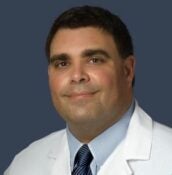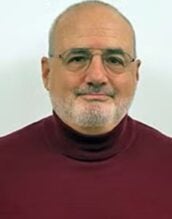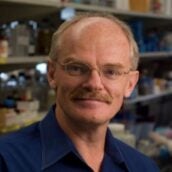Research Partners
Cancer Cell Biology (CCB)
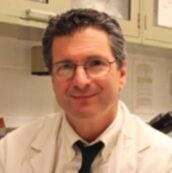
Christopher Albanese, Ph.D.
Georgetown University
Professor and Executive Director, Founder, Center for Translational Imaging, Georgetown Medical Center
The role of oncogenes and tumor suppressor proteins in the induction and maintenance of gentinourinary and other cancers, including malignancies of the GI track and brain.
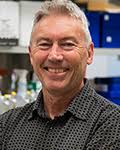
Stephen Byers, Ph.D.
Georgetown University
Professor
Cell adhesion, chemoprevention, and the development of anti-cancer drugs

Albert J. Fornace Jr., M.D.
Georgetown University
Professor
Researches how environmental stresses can cause normal cells to become cancerous—and developing ways to stop this from occurring or to exploit differences between normal and malignant cells therapeutically
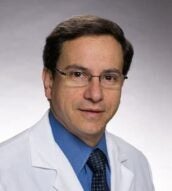
Martin E Gutierrez, MD
Hackensack Meridian Health
Identification of different tumor phenotypes and tumor microenvironments that could be used to develop improved methods; for early cancer detection, diagnosis, and prognostication of gastrointestinal peritoneal metastasis

Chukwuemeka U Ihemelandu, MD
MedStar Washington Hospital Center
Analyzing the use of near-infrared fluorescent technology to look for microscopic cancer during surgery to aid in the complete removal of disease. He is also analyzing the molecular profile of unique tumors in the abdomen to understand how treatment can be personalized for each patient.
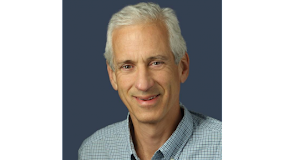
Gary Kupfer, PhD
Georgetown University
Professor
FA-BRCA mutant tumors, especially CCA; pediatric and young adult cancers; molecular vulnerabilities of somatically-mutant FA-BRCA tumors; Basic biology of DNA repair

Usha N. Kasid, PhD
Georgetown University
Professor
Research areas of cancer biology and developmental therapeutics include: Raf-1/Erk signaling; integrins; tumor growth and metastasis; mitochondrial pathway of cell death; ER stress response; radiation resistance and chemoresistance; systemic delivery of antisense and siRNA containing liposomal nanoparticles; breast, prostate and pancreatic cancers
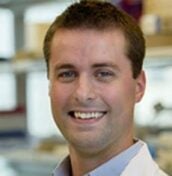
Alvin Makohon-Moore, Ph.D.
Hackensack Meridian Health
Cancer evolution, genomics, phylogenetics, experimental evolution
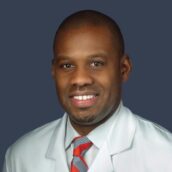
Marcus Noel, MD
MedStar Georgetown University
Associate Professor
Novel drug development for pancreatic cancer and well as other gastrointestinal malignancies
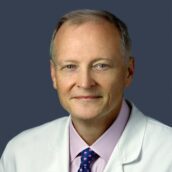
John L. Marshall, MD
Georgetown University
Professor
Clinical trial design, AI, Digital path, precision medicine.

Ivana Peran, PhD
Georgetown University
Assistant Professor
Cancer Biology, Immuno-Oncology, Pancreatic Cancer

Jill P Smith, MD
Georgetown University
Professor
Pancreatic Cancer Models for Drug Development

David Robbins, Ph.D.
Georgetown University
Professor
Wnt and SHH signaling pathways, WT and engineered colonoids, CRC flank models, developing breeding colony for apc;kras;p53 GEM, and developing orthotopic (rectal) CRC model.

Rabindra Roy, Ph.D.
Georgetown University
Professor
The role of repair of DNA damage, induced by oxidative stress in the prevention of cancer, neurological disorders and aging
Richard Schlegel, PhD.
Georgetown University
Professor
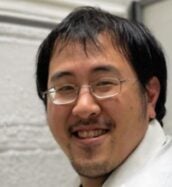
Kevin Tong, Ph.D.
Hackensack Meridian Health
GEMMs, Organoids (2D/3D systems), Organoid Transplantion Model, BRAF-V600E, SMAD4/TGFB, WNT

Benjamin Tycko, M.D., Ph.D.
Hackensack Meridian Health
Research program focusing on genetics and epigenetics in human development and disease
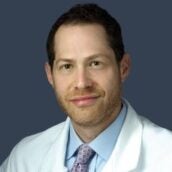
Keith Unger, MD
MedStar Georgetown University Hospital
Research focus is the development of novel radiation therapy techniques and reduction in treatment-related side effects

Louis Weiner, MD
Georgetown University
Professor and Director of Lombardi Comprehensive Cancer Center
New therapeutic approaches that mobilize the patient’s immune system to fight cancer using monoclonal antibodies

Chungling Yi, Ph.D
Georgetown University
Associate Professor
Research focus on dissecting how the crosstalk between the Hippo-YAP/TAZ pathway and other cancer pathways contributes to the initiation and progression of various types of human cancers such as pancreatic, kidney, liver and lung cancers and Neurofibromatosis Type 2 (NF2)
Cancer Host Interactions (CHI)

Maria Laura Avantaggiati, M.D.
Georgetown University
Associate Professor
Metabolic pathways in the initiation and progression of HCC, especially in the context of NASH. Inflammation and obesity. Novel drugs for NASH and HCC. Hepatic metabolism contribution to liver metastasis.
Amrita Cheema, Ph.D.
Sonia DeAssis, Ph.D.

Fung-Lung Chung
Georgetown University
Professor
Mechanism of chemical carcinogenesis and cancer chemoprevention
Cancer Prevention Control (CPC)

Jan Blancato, Ph.D.
Georgetown University
Professor
Use of molecular cytogenetics in human genetic conditions and breast cancer subtypes. Recent work has focused on the microbiome and response to therapy in breast and liver cancer
Claire Conley, Ph.D.

Chiranjeev Dash, M.B.B.S., M.P.H., Ph.D.
Georgetown University
Associate Professor
Molecular epidemiology and cancer prevention and control in minorities and underserved populations

Kimberly Davis Ph.D.
Georgetown University
Associate Professor
Quality of life and symptom management of cancer patients and survivors
Radoslav Goldmanm Ph.D.

Kristi D. Graves, PhD
Georgetown University
Associate Professor
Cancer survivorship and translational genomics, with a particular emphasis on community engagement and addressing health disparities

Derek M Griffith, PhD
Georgetown University
Professor
Developing strategies to achieve racial, ethnic and gender equity in health

Priyanka Kanth, M.D., M.S.
MedStar Georgetown University Hospital
Research on colon polyps, serrated colon polyps, hereditary gastrointestinal cancer syndromes, including Lynch syndrome, familial adenomatous polyposis, juvenile polyposis syndrome, Peutz-Jeghers syndrome, serrated polyposis syndrome, hamartomatous polyposis syndromes, hereditary diffuse gastric cancer, gastrointestinal cancer genetics, and the prevention of colon cancer.

Christopher Loffredo, Ph.D.
Georgetown University
Professor
Environmental and genetic causes, and especially on the roles that genetics play in mediating the risks from environmental chemical exposures. His research spans liver, bladder, and lung cancer in relation to chronic infections such as HCV, and environmental factors such as pesticides and secondhand smoke.
Beth Peshkin, MS
Habtom Ressom
Julia Rowland, Ph.D.

Laura Rozek, PhD.
Georgetown University
Professor

